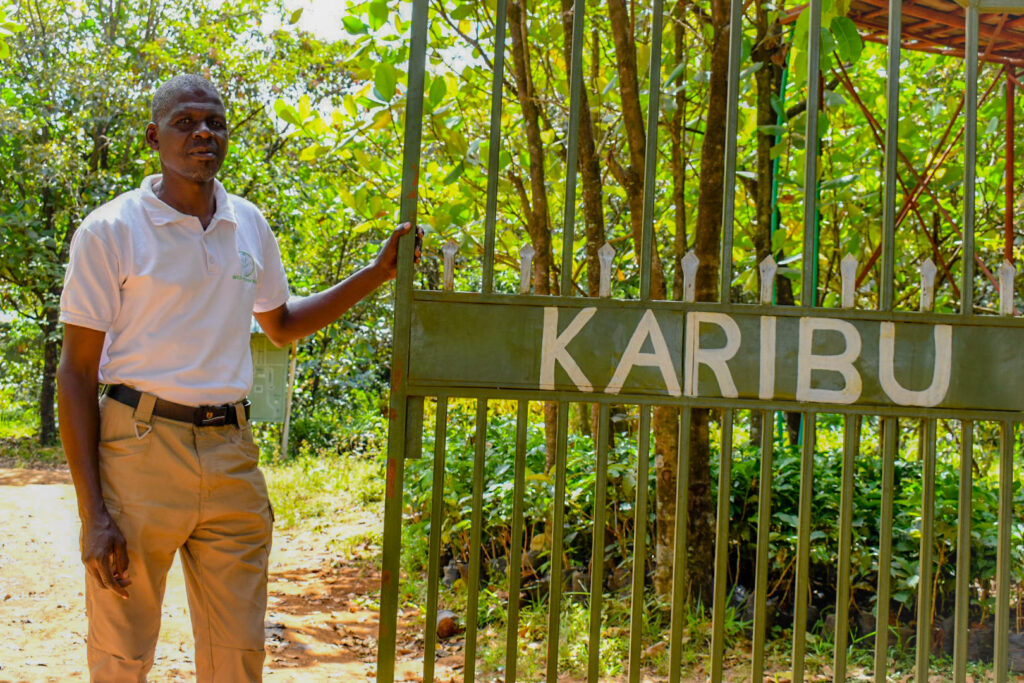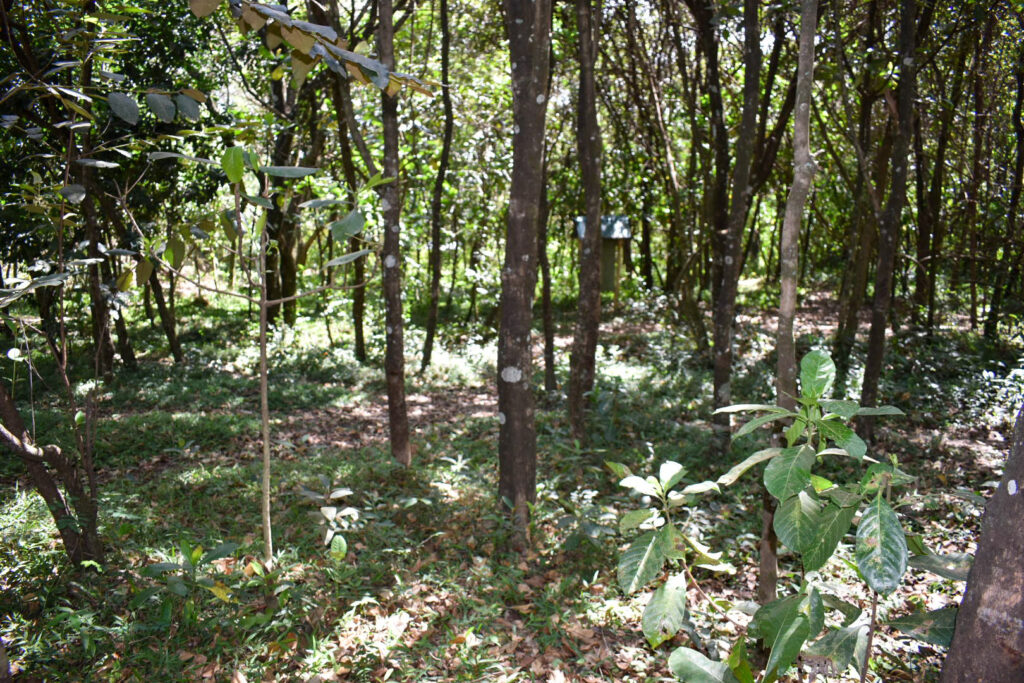Chirping birds, forest insect sounds, and a natural aura propelled by calm forest winds characterize the environment that welcomes you to Wild Destiny Park Kanduyi, Bungoma County.
From Webuye-Busia Highway, the rich indigenous forest stands out in an area where investors have raided to put up housing projects; commercial buildings, and apartments.
Constantine Simati Wafula, 52, quit his education career spanning nine years, where he was teaching in secondary school to focus on environmental conservation.
The park holds immense significance to him. He is now concentrating on developing the park to international standards.
About 50 metres from the park, tree branches are well-carved to form a welcoming canopy.
More prominent, however, is the abundant green and natural sight that transitions one from the anarchy in the highway to a calm and refreshing environment.
A walk deep into the park opens us into a larger space, well-maintained grass, beautifully-trimmed flowers and edges, and a series of relaxing huts to accommodate visitors and probably harbor them after forest walks.
We meet Simati donning a white branded t-shirt with the park logo and a pair of grey trousers.
The light-bodied Simati’s smile makes you feel at home. You would hardly realize he owns the park.
Were it not for the grey hair coloring his head, one would mistake him to be much younger, probably in the late thirties or early forties.
Wild Destiny Park rests on a 2-acre piece of ancestral land which Mr Simati inherited from his parents.

But how did Mr Simati conceptualize the idea of Wild Destiny?
The gentle-looking man born 52 years ago grew up and schooled in Bungoma County.
He crowned his A-levels education at Kamusinga High School before joining college to study Geography and Biology.
He completed his training and worked as a professional teacher for the two subjects for nine years before he resigned and joined the Center for Training in Tourism Research in Langata Nairobi.
He then proceeded to Moi University where he furthered his studies.
“All this time that I was in training, working and schooling at the same time. I knew I had this treasure and I knew I had to be the one to make use of it,” he explains.
As we engage him, he occasionally excuses himself to attend to visitors seeking services from the park.
The ever-smiling Simati’s love for the park is evident how he speaks and conducts himself with the visitors.
At one point, Mr Simati races with his black, youthful, thus playful, male dog, demonstrating once again his deep connection with nature, plants, and animals.
“Why is the idea of the park a great deal for you?” we inquire.
“My father did not clear this forest for a reason. It is my duty to protect this forest and improve it like I am doing, so that I teach others about the importance of environmental conservation,” he explains.
In the forest, Mr Simati explains that there are over 43 species of trees and plants that he has since identified and labeled.
From afar, workers prepare tree seedlings, a project that he initiated to increase the tree population besides selling some.
We noticed a tree cut and five others planted close by and sought to inquire if this was something he had planned to do.
His soft smile delays this time around. A more serious look replaces it. He explains how he was called one evening to find a trespasser cutting down the tree for firewood.
He made the subject purchase and plant five new tree seedlings of the same species. He marvels at how humanity does not see the threat the world is facing by cutting trees.
“Today all the water I am using for the park activities including the fish reservoir is natural water from this forest. What will happen if we destroy this forest?” he poses.
He leads us to a nearby water reservoir where he rears fish. He has also created a water sport where visitors can ride on water using plastic boats at a fee.
Fish-catching for fun is also allowed. He however explains that the goal of the project is to demonstrate to people that fun is abundant in nature, but it is only manifest when we conserve and protect the environment.

His Future plans?
Mr Simati admits that there is much work to be done before the park hits its ideal levels.
However, he anticipates partnerships with individuals and like-minded institutions to domesticate some animals, expand the forest and add more tree species to the existing ones.
He explains that while the County and national governments have near-excellent policies that advocate for conservation, there is a gap in the implementation of the policies primarily because those who are expected to implement the policies do not seek the involvement of individuals like Simati.
“I am a practitioner, I am experienced, and there is a lot of input I can make to bettering environmental conservation in both the county and national level. This place alone is a powerful resource center that can be improved further. But nobody cares,” he laments.
As Mr Simati escorts us out of the park, he gives a word of advice to individuals who are interested in taking the conservation route.
“You don’t have to have a lot of money, just do something within your abilities to make a difference. If we make an effort at individual levels, it will count in the end. Our world will be more habitable!,” he says.

Great work being done by an individual.
Congrats mr. Simati.
Wow😘 congrats Mr.Simati